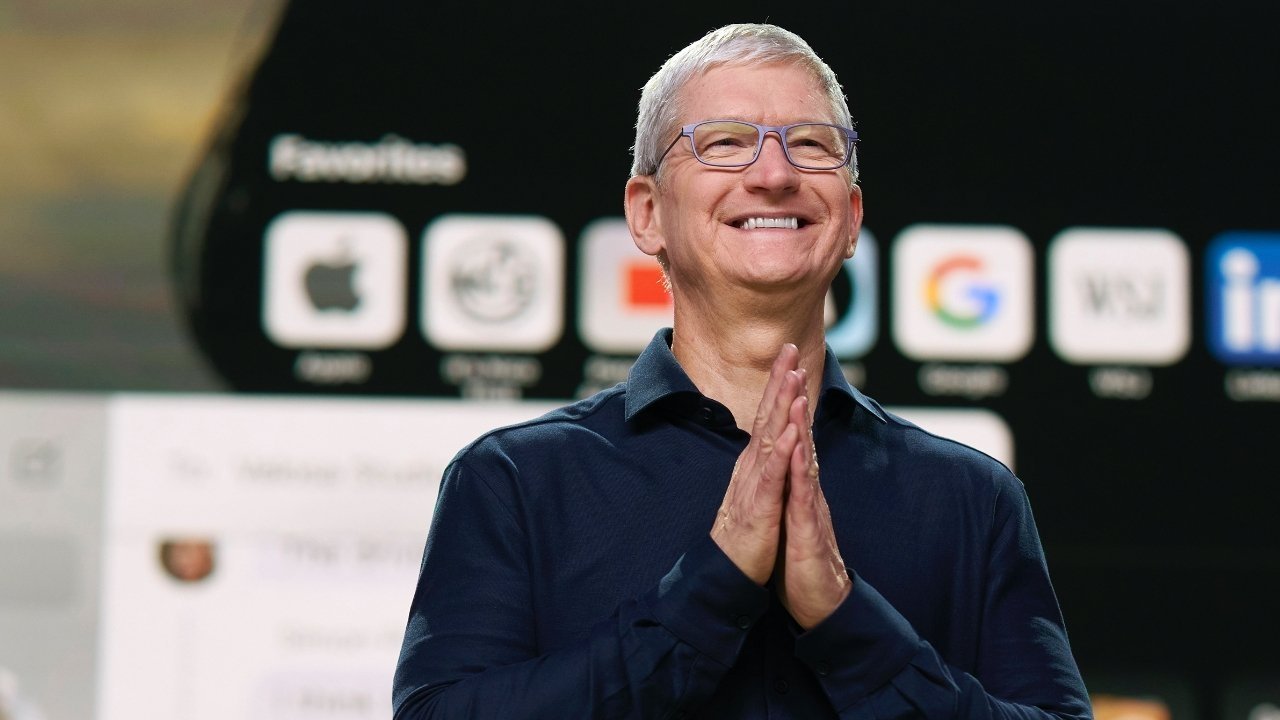Apple's Cook receives, sells off over 5M shares of AAPL stock worth more than $750M
Apple CEO Tim Cook received more than 5 million shares of company stock this week, with the executive cashing out the entire award to come away with about $355 million.

The windfall of 5,040,000 shares, worth more than $750 million, fulfills payout of a stock deal Cook reached when he took over as CEO in 2011.
Cook's award included 3,920,000 time-based and 1,120,000 performance-based restricted stock units that vested in full. To meet stipulations that would release the full allotment, Apple's total shareholder return needed to be in the top third of companies listed on the S&P 500 over a three-year period from Aug. 25, 2018 through Aug. 24, 2021. The company's TSR came out to 191.83%, putting it in 13th place among the 442 companies that remained in the index for the full three years.
Upon seeing the full measure of his award vest, Cook on Tuesday sold all shares in multiple transactions collectively worth $751.6 million, according to a U.S. Securities and Exchange Commission filing. The executive came away with $354.6 million after Apple withheld $397 million to satisfy tax requirements.
Following this week's selloff, Cook is left with 3,279,726 shares of Apple stock.
Early details of Cook's payday were reported earlier today.
With the 2011 compensation plan now complete, Apple's chief executive has moved to a new RSU grant awarded last September. The new package includes 336,987 RSUs and up to 1,001,961 in performance-based units.
As noted by CNBC, SEC filings also show Cook donated nearly $10 million worth of shares to an unnamed charity earlier this week.
Read on AppleInsider

The windfall of 5,040,000 shares, worth more than $750 million, fulfills payout of a stock deal Cook reached when he took over as CEO in 2011.
Cook's award included 3,920,000 time-based and 1,120,000 performance-based restricted stock units that vested in full. To meet stipulations that would release the full allotment, Apple's total shareholder return needed to be in the top third of companies listed on the S&P 500 over a three-year period from Aug. 25, 2018 through Aug. 24, 2021. The company's TSR came out to 191.83%, putting it in 13th place among the 442 companies that remained in the index for the full three years.
Upon seeing the full measure of his award vest, Cook on Tuesday sold all shares in multiple transactions collectively worth $751.6 million, according to a U.S. Securities and Exchange Commission filing. The executive came away with $354.6 million after Apple withheld $397 million to satisfy tax requirements.
Following this week's selloff, Cook is left with 3,279,726 shares of Apple stock.
Early details of Cook's payday were reported earlier today.
With the 2011 compensation plan now complete, Apple's chief executive has moved to a new RSU grant awarded last September. The new package includes 336,987 RSUs and up to 1,001,961 in performance-based units.
As noted by CNBC, SEC filings also show Cook donated nearly $10 million worth of shares to an unnamed charity earlier this week.
Read on AppleInsider

Comments
I can make some guesses: Facebook (FB), Amazon (AMZN), Netflix (NFLX), Alphabet (GOOG/GOOGL), Nvidia (NVDA) and Tesla (TSLA).
Two other likely candidates are Visa (V), and MasterCard (MC). That leaves four other companies.
Mr. Cook would also have a short term capital loss of about $2.5 million because the shares he sold went down in value (on average) by the time he sold them the next day. In the alternative, he might have a long term capital gain on those shares. It depends on how he accounts for stock sales - first in, first out (FIFO) or last in, first out (LIFO). The shares he sold on Wednesday could be considered to be the shares he just got on Tuesday or they could be considered to be shares he had previously.
That’s an awfully big house and I haven’t seen him much into real estate.
I wonder what investment he likes more than just holding Apple.
OMG Cindy, lighten up! I think most folks get that it's humor - and I know I'd look like that if I just sold $750M in stock!
This is correct. Share buybacks can also be suspended indefinitely if the climate isn't right since there is no commitment for the company to actually conduct the transactions. On the other hand, cutting dividends usually upsets shareholders. Apple has two main reasons to issue dividends: A.) to increase shareholder value (duh), and B.) to be eligible for inclusion in certain funds, pension plans, etc. which require companies to issue dividends.
Any company's cash reserves can be used for a variety of purposes. I've never heard of a company using all of its available cash for one purpose. Apple's share buyback program is a tiny percentage of their total available cash.
This is also correct. Real investors don't listen to CNBC nonsense or "personalities" like Dave Ramsey. They listen to Jerome Powell and read SLOOS reports.
If Tim Cook is retiring in a year, that's a rumor (a decidedly sketchy one) because Apple has made no official statement. Tim Cook will be 61 in November. He appears to be healthy and very energetic. My own guess is that he has already set a window for retirement. It might be around age 65.
I believe that Cook will stay as chairman and Williams or Federighi will do the CEO.
Propping up share prices does nothing but rob the company of money to invest in itself. It simply gives money -- often borrowed -- to shareholders. If they don't want to invest in their own company, it would do more good being donated to a worthy cause.
/s
get off your soap box George, you’re embarrassing yourself.
No well run company squanders its capital.